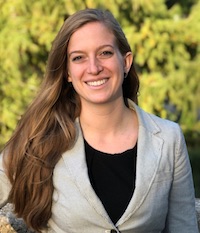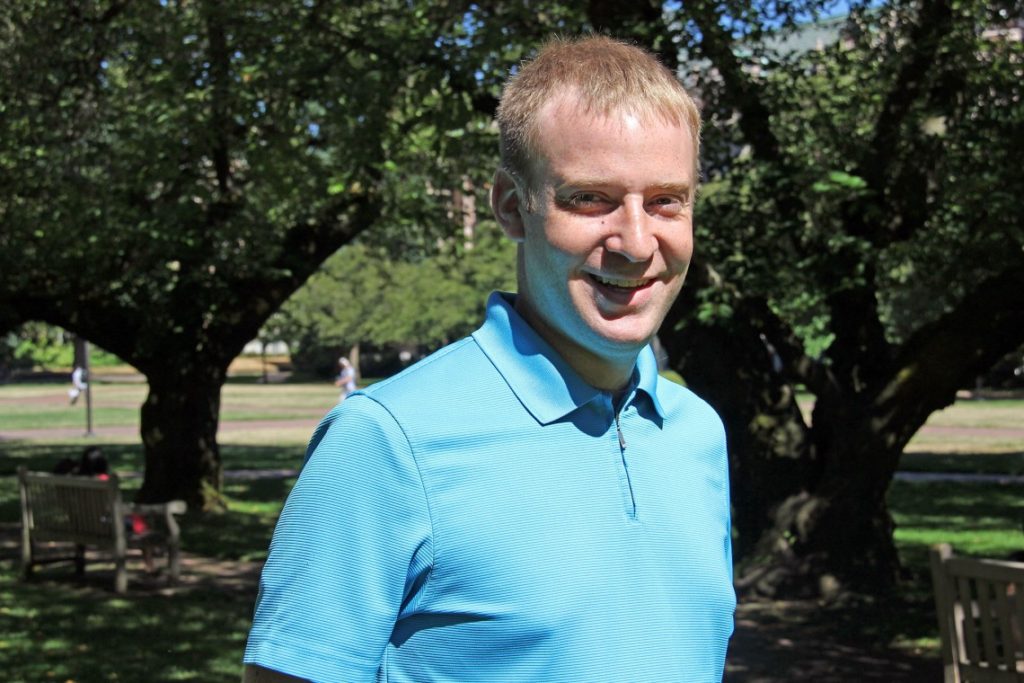Hi, reader! We are excited to announce that going forward, this column will no longer be called “the Grad School Guide” and is now “Your Grad School Guide.” Our new name reflects that while the blog is written by a single, anonymous author, we are culling information from sources across the UW to provide you with the best advice and resources.
Everything else will stay the same. When you submit a question anonymously to Your Guide, you can still opt to receive a personalized response that will not be shared with anyone else. The methods of submitting a question, the kinds of questions answered and our dedication to providing you with resources and support to thrive in grad school will remain the same. Happy asking!
How do I get into a leadership position? I am returning to graduate school after nearly two decades in the workforce in assistant positions. I am ready to move upward in my career, if someone will just give me a chance. I am afraid that even when I graduate, I will still be seen as only qualified for assistant roles. Please help, any assistance would be greatly appreciated. Thank you!
–Anonymous
This blog post was developed based on input from Dr. Bruce Avolio, Mark Pigott Chair in Business Strategic Leadership.
Hi there,
Thanks for reaching out to your Grad School Guide! I am excited that you are looking to take on leadership roles in your work and I hope I can give you some advice to help you get there.
I have lots of tips and ideas in store for you, but I also want to encourage you to reach out to folks at your campus Career Center or an advisor within your department. They may have additional ideas that are more tailored to your needs within your discipline and career. I’ll list the contacts for the career centers at the end of this post. Your department’s website will have more information about your graduate program advisor or graduate program coordinator.
I asked Bruce Avolio, professor at The Foster School of Business and director for the Center for Leadership and Strategic Thinking, about what makes a good leader. Dr. Avolio says “there are successful leaders without these qualities, but the prototypical leader that most people highly respect have many of the following”:
Personal qualities:
- Open to new and different experiences and perspectives. Has a global mindset.
- Attitude: positive, hopeful, optimistic and humble.
- Authentic and has a strong moral identity. This means acting in a moral and ethical way and being just, highly self-aware of how you impact others, and transparent. Willing to take hard stands on important issues.
Orientation to work:
- Motivated to lead! This means you are interested in influencing others and spending the time to learn how to do so. Motivation to lead is usually a starting point for leadership.
- Work ethic: conscientious, proactive, resilient and efficacious.
- Able to suspend judgment and gather more data before coming to conclusions.
- Willing to sacrifice self-interests for the good of the larger group.
- Future-oriented in terms of goals and objectives.
Interactions with others:
- Empathetic and understanding. Can take other people’s points of view
- Builds trust and goodwill by being consistent and following through
- Uses positional power in socially constructive ways
- Intellectually stimulating and encourages others to see different scenarios, assumptions and different world views
- A good steward
Here are some of Your Guide’s ideas for developing these skills:
- Identify individuals you respect in current leadership roles and even previous leaders. Observe these people and read about them to see how they show up for leadership and how they treat others, what they focus on, their core values and beliefs, their role models and mentors, etc. (This task is directly from Dr. Avolio!)
- Practice being empathetic to a coworker, peer, teacher or someone else.
- Reflect on your morals and values. You may find journaling, doodling or list-writing helpful with this. Think about what you care about and how these values will inform your leadership.
- Take a class in active listening.
- Join a Registered Student Organization (see links below) and take a leadership position within the club. If you don’t find a club that suits your interests, start your own!
- Volunteer with a local non-profit in a position that allows you to flex your leadership skills
- Look for opportunities (formal or informal) to mentor an undergraduate student in your field.
- Read a book written by someone with a different background or identity from your own to broaden your perspective.
Phew! There are a lot of ideas here, but if you pick only one and set an intentional goal to work on it this year, I am confident you’ll make astounding progress!
Finally, don’t be too hard on yourself! Starting grad school is a big, important step in taking more leadership roles. Celebrate the things that you are already doing to advance your career and put some trust in your process.
Sincerely,
Your Grad School Guide
Resources:
- Bothell Career Center and Bothell Registered Student Organizations
- Seattle Career Center and Seattle Registered Student Organizations
- Tacoma Career Center and Tacoma Registered Student Organizations
 “Listen, and listen more than you talk,” says Lauren Fine, a doctoral student studying political communication at the interpersonal level. It’s good advice, generally, but it’s especially prudent if you’re struggling to discuss politics with family or friends at holiday gatherings.
“Listen, and listen more than you talk,” says Lauren Fine, a doctoral student studying political communication at the interpersonal level. It’s good advice, generally, but it’s especially prudent if you’re struggling to discuss politics with family or friends at holiday gatherings.